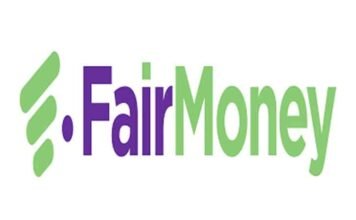At some point, everyone faces a financial crunch. Whether it’s an unexpected medical emergency, a business opportunity, or a personal need, we’ve all been there. When money is tight, the next step often becomes seeking a loan. But applying for a loan can seem overwhelming, especially when you’re unsure of the documents required. What do you need to get started? How can you make sure your application is approved quickly?
If you’re reading this, you’re probably looking for answers to these very questions. You might have a specific need for the loan but are unsure about the documentation process. Rest assured, you’re not alone, and getting that financial assistance is closer than you think. In this article, we’ll take a deep dive into everything you need to know about applying for a loan, the required documents, and how you can plan to repay it responsibly.
You can also read:
- How to Get Fast Funds with Instant Approval and Easy Terms!
- Are There Agricultural Loans for Farmers in Nigeria?
- How Can Rural Farmers Access Loans Without Bank Accounts?
- What Types of Loans Are Available to Nigerians, and Which One Suits My Needs Best?
- How Can I Manage My Loan Repayment If I Have a Fluctuating Income?
- How to Get Quick Loan Approval Without Stress in Nigeria
- How to Apply for Loans Without Being Rejected in Nigeria
- Proven Steps to Secure a Loan Without Collateral in Nigeria
- The Secrets to Getting Your Loan Approved on the First Attempt
- How to Borrow Money Safely Without Falling for Scams
- How to Access Loans Fast Without Long Bank Delays
- How to Apply for a Loan Without a Guarantor or BVN
- The Easiest Way to Get a Loan Without Collateral in Nigeria
- Best Loan Options in Nigeria for People with No Steady Income
- Smart Strategies to Get Your Loan Approved Faster
- How to Access Loans for Your Business Without High Interest Rates
- Top Mistakes to Avoid When Applying for a Loan in Nigeria
- How to Borrow Money Without Ruining Your Reputation
Why Do You Need Money?
Before we get into the specifics of loan applications, it’s essential to understand why you need the loan in the first place. Whether you need funds for an emergency, starting or growing a business, education, or paying for medical expenses, knowing the purpose of your loan helps you stay focused. Understanding why you need the money is also important when considering repayment. It’s easier to repay a loan when you are clear on the purpose and the benefits of borrowing.
How Can You Use the Loan Wisely?
Loans should be taken as a tool to help you achieve specific financial goals. Once the need is identified, you should use the loan for its intended purpose only. This helps you stay on track with your repayment plan and ensures that the borrowed money is used responsibly.
What Documents Do You Need to Apply for a Loan?
So, what exactly do you need to apply for a loan in Nigeria? Different lenders have different requirements, but there are common documents that are generally required across the board. Here’s a breakdown:
1. Valid Proof of Identity
- This is the most crucial document you’ll need. Proof of identity includes your National Identity Card, International Passport, Driver’s License, or Voter’s Card. Lenders need to confirm your identity before proceeding with the loan application.
2. Proof of Income
- Lenders need assurance that you will be able to repay the loan. Providing proof of income is one way to demonstrate that you have a steady flow of funds. This could include:
- Recent pay slips (for salaried individuals).
- Bank statements for the past 3 to 6 months.
- Tax returns if you’re self-employed or a business owner.
3. Proof of Address
- This can be a utility bill (electricity, water, gas), a tenancy agreement, or a bank statement showing your name and address. It helps lenders confirm your residential location.
4. Guarantor’s Information (Optional)
- Some loan types may require a guarantor, especially for larger amounts. However, there are now lenders offering unsecured loans that do not require a guarantor. This depends on the type of loan you are applying for.
5. Credit History
- A clean credit history or a good credit score can increase your chances of loan approval. While some lenders may not focus on credit scores, others might use it to assess your loanworthiness.
6. Loan Purpose (Optional)
- While not always required, it’s helpful to have a clear explanation of the purpose of the loan. Lenders may ask for this information to determine the loan type or the interest rate applicable.
How to Plan for Repayment
When applying for a loan, it’s essential to have a repayment plan in place. Here are some helpful steps to guide you:
1. Understand Your Loan Terms
- Read through the loan terms carefully. Understand the interest rate, repayment period, and other conditions. Some loans have daily, weekly, or monthly repayment schedules, so choose what works best for your income cycle.
2. Create a Repayment Budget
- Once you know your repayment amounts, incorporate them into your monthly budget. Set aside a portion of your income specifically for loan repayment. This will help you avoid missing payments and reduce the financial strain.
3. Be Proactive About Repayment
- The key to repaying any loan is discipline. Don’t wait until the last minute to make payments. Try to pay off more than the minimum if you can. This will help you pay down your loan faster and reduce the interest burden.
Loan Options from FairMoney
If you’re looking for a reliable lender in Nigeria, FairMoney is one option you should consider. Below is a table showing the different loan options FairMoney offers, along with their interest rates, eligibility, and repayment periods:
| Loan Type | Interest Rate | Eligibility Criteria | Repayment Period |
|---|---|---|---|
| Personal Loan | 10% – 25% per annum | Age 18+, valid ID, regular income or business operation | Up to 12 months |
| Emergency Loan | 15% – 30% per annum | Valid ID, urgent need for funds | 1 to 3 months |
| Business Loan | 12% – 18% per annum | Registered business, proof of income | 6 to 24 months |
Note: Always check with FairMoney for updated terms and conditions.
Advice from Edujects:
“On no account should you take beyond what you can repay. This is an opportunity, but don’t overuse it to affect you just because you have access to it freely. Don’t take beyond the capacity of your income expectations. Endeavor to use the money for its intended purpose. Learn from the business side of the Igbo community. The Igbo would never borrow money for anything other than the specific purpose the money was meant for. Anyone can have an emergency, and an emergency requires an emergency purpose. When the emergency is fixed, immediately start planning for repayment. This approach will build trust and credibility, ensuring that you can receive future support when needed. Don’t wait until you’re being chased by the bank for repayment. Start planning for repayment today.”
Applying for a loan in Nigeria doesn’t have to be a daunting task. By ensuring you have the necessary documents, understanding the loan requirements, and planning for repayment, you can make the process much smoother. Remember, the goal of borrowing is to improve your financial situation, not to put yourself under undue stress. Take the time to use the loan for its intended purpose and always stay disciplined with repayments.
The next time you need to apply for a loan, make sure you’re fully prepared with the right documents. This will not only increase your chances of approval but will also help you manage the loan responsibly.






